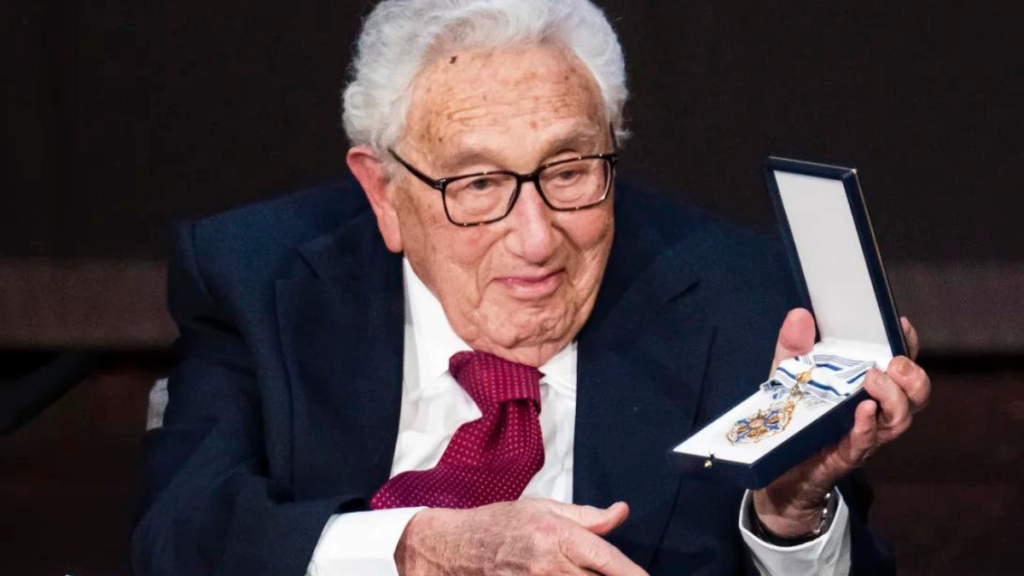Henry Kissinger, born in 1923, was a prominent figure in US foreign policy. Born in Germany, he fled Nazi persecution as a Jewish boy and arrived in the US in 1938. He earned his doctorate at Harvard University and worked as a consultant for various government agencies. His influence reached its peak when he served as the US national security adviser and secretary of state under President Richard Nixon. Kissinger’s legacy is lauded and condemned, reflecting the complexities of his career. He played a crucial role in orchestrating the end of US military involvement in the Vietnam War, earning him a share of the Nobel Peace Prize in 1973. However, the peace accords were tainted by the fall of Saigon in 1975 and the loss of over 58,000 American lives. Kissinger’s diplomatic prowess extended to the Middle East, where he implemented “shuttle diplomacy” after the 1973 Yom Kippur War. His influence was not without controversy, as evidenced by his brief tenure leading a commission investigating the events preceding the September 11 attacks in 2002. His legacy remains a subject of historical reflection and ongoing debate in US politics and international relations.
The Architect of US Foreign Policy in the 1970s
Henry Kissinger’s journey from a refugee to a dominating force in US foreign policy is nothing short of extraordinary. After becoming a US citizen in 1943 and serving in World War II, he earned his doctorate at Harvard University. His rise to prominence began when he became a faculty member at Harvard, eventually becoming the associate director of Harvard’s Center for International Affairs.
In the 1960s, Kissinger worked as a consultant for various government agencies, including the National Security Council, the US Arms Control and Disarmament Agency, and the State Department. His influence reached its zenith when he served as the US national security adviser and later as the secretary of state under President Richard Nixon.
Controversial Legacy: Vietnam War and Cambodia Bombing
Kissinger’s legacy is both lauded and condemned, reflecting the complexities of his career. He played a crucial role in orchestrating the end of US military involvement in the Vietnam War, earning him a share of the Nobel Peace Prize in 1973. However, the peace accords were tainted by the subsequent fall of Saigon in 1975 and the loss of over 58,000 American lives.
Controversy surrounded Kissinger’s involvement in the bombing of Cambodia during the Vietnam War, which inadvertently contributed to the rise of the genocidal Khmer Rouge regime. The bombings, intended to target North Vietnamese sanctuaries, had devastating consequences, becoming a recruitment tool for the Khmer Rouge.
Middle East Diplomacy and Détente with the Soviet Union
Kissinger’s diplomatic prowess extended to the Middle East, where he implemented “shuttle diplomacy” after the 1973 Yom Kippur War, aiming to separate Israeli and Arab forces. His approach to US-Soviet relations, labeled “détente,” played a significant role in easing tensions and culminated in several arms control agreements.
While his diplomatic achievements were noteworthy, Kissinger faced criticism for the secretiveness of Nixon’s foreign policy and allegations of neglecting human rights in favor of realpolitik considerations.
Legacy Beyond Politics: A Celebrity Diplomat
Beyond his political career, Kissinger’s charisma and intellect garnered public attention. Topping Gallup’s “Most Admired Man” survey for three consecutive years in the 1970s, he became a celebrity in his own right. His personal life, public appearances, and even nights at New York’s Studio 54 made headlines.
In a 2016 interview, Kissinger reflected on negotiation, stating, “In order to negotiate, one has to understand the perception of the other side of the world.” This sentiment encapsulates his approach to diplomacy, emphasizing the importance of mutual understanding in international relations.
Later Years and Enduring Controversy
After leaving the State Department in 1977, Henry Kissinger remained an influential figure, offering his insights on geopolitics through extensive writing and international consultancy. His influence was not without controversy, as evidenced by his brief tenure leading a commission investigating the events preceding the September 11 attacks in 2002.
Kissinger’s name continued to evoke strong reactions, exemplified by a tense exchange between Democratic presidential candidates Hillary Clinton and Bernie Sanders in 2016. The enduring divisiveness surrounding Kissinger highlights the complex and multifaceted nature of his legacy.
A Statesman’s Farewell
Henry Kissinger’s death at the age of 100 marks the end of an era. Whether celebrated for his diplomatic achievements or criticized for controversial decisions, his impact on US foreign policy is undeniable. Former President George W. Bush, remembering Kissinger, spoke of his wisdom, charm, and humor, acknowledging the greatness of a man who fled the Nazis and later shaped America’s diplomatic landscape.
As the world bids farewell to Henry Kissinger, his legacy, marked by triumphs and controversies, remains a subject of historical reflection and ongoing debate in the realm of US politics and international relations.







